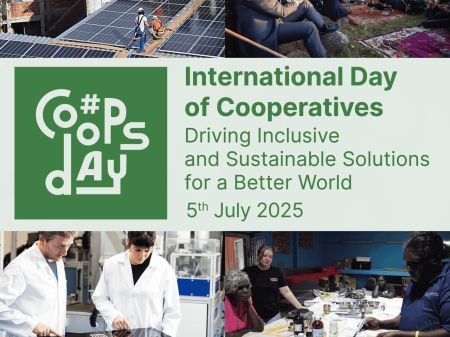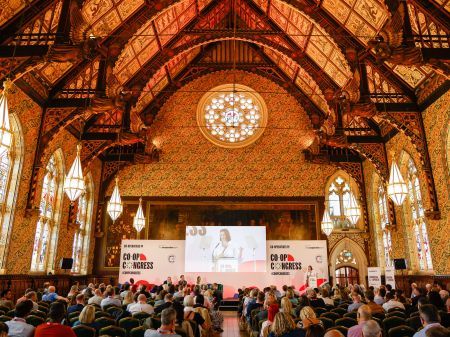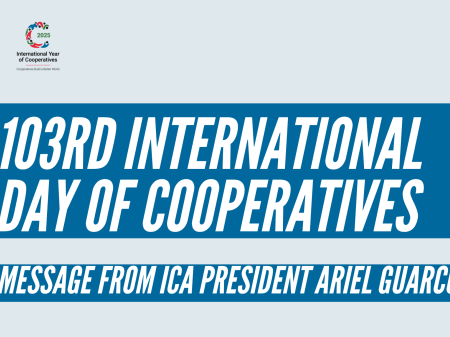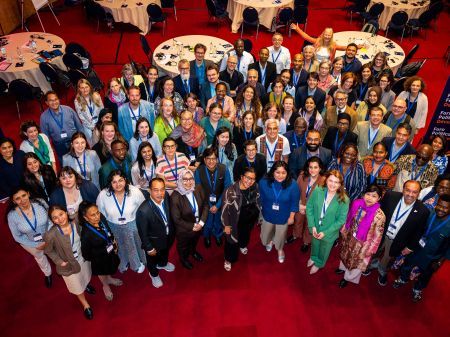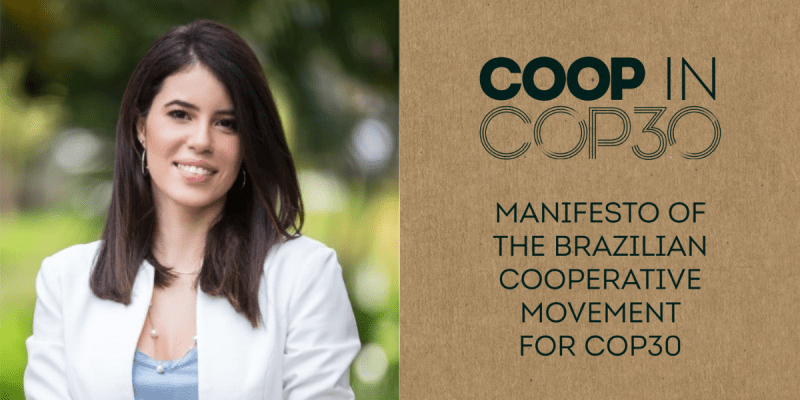
Brazil holds approximately 12% of the Earth's freshwater reserves. It has a coastline of 7,491 kilometres (4,655 miles) and it is the fifth-largest country in the world by area. On 10-21 November, it is hosting the 2025 United Nations Climate Change Conference (COP30) in Belém, the capital and largest city of the northern state of Pará.
As the ICA and COPAC publish their latest Policy Briefings – on Sustainable Development Goal (SDG) 14 (Life on Land) and SDG15 (Life under Water) – we spoke with Fabíola da Silva Nader Motta, General Manager of the Organization of Brazilian Cooperatives (OCB), about how the country’s 4,500 cooperatives approach environmental conservation and protection, and OCB’s aims for COP30.
Why are SDG14 and 15 important to cooperatives in Brazil?
Mainly because of our agriculture cooperatives. Co-ops have a big role helping farmers to use better technology so their production does not affect the environment as much. No one wants to respect and protect the environment more than the farmers, because they want their production to continue for their children, for their grandchildren, for the world. The cooperatives really care about the prosperity of the environment and their local communities. So we have to show cooperatives as a solution in COP30 in a way that demonstrates how we can scale the best practices in production.
We have 1 million farmers in Brazilian cooperatives, and through their organisations, they access those best practices through technology much faster than other business models. We partner with governments and institutions that want to help those farmers do better – use energy, water and natural resources better – which is very important for the cooperatives. What we bring to the table at COP 30 iS a message for the government that we are solutions and we are problem solvers they should use.
How have you been engaging with the government ahead of COP30?
We have been participating in a lot of working groups and have conducted research with leaders of cooperatives in Brazil, talking to them about the challenges, needs and solutions. And we produced The Manifesto of the Brazilian Cooperative Movement for COP30 which includes five main points we want to bring to the table. These are food security, technology and low-carbon agriculture; valuing communities and climate funding; energy transition and sustainable development; bioeconomy as a development driver; and adaptation and mitigation of climate risks.
We are also working hard to secure a pavilion at the event, where we can showcase all the great experiences of cooperatives, both in Brazil and around the world.
Some of these stories are already being shared on our new website – cop30.coop.br – which brings together various examples of cooperatives focused on sustainability and environmental management, providing a rich source of learning about how cooperatives can contribute to the climate agenda and sustainable development. These case studies illustrate how the cooperative model can be an important agent in promoting the green economy, offering valuable lessons on community engagement and collaborative actions for a more sustainable future.
What would your ideal outcome be from COP30?
We want to maximise the number of people going through our pavilions and getting to know us and know that cooperatives exist and we are a solution. Secondly, we want to be mentioned by the government as part of the solution. Thirdly, we want to have financing options for cooperatives, to enable them to become an even more sustainable model; that's very important for us, too, especially when we talk about Amazon.
Because everyone looks at Amazon, all the trees, all the rivers, and you forget all the people who are there. We always say that the tree standing up has to be worth more than the tree cut down – so we have to make that happen for them, and cooperatives are a really good way to do that. But a lot of the time, they don't get financing for their business. And if they don't get financing, then what are they going to do when they have families and needs? That's something that we really worry about.
The World Social Summit is taking place in Doha a week before COP30. How do you see the two events interlinking?
I think everything is interlinked, as we have to be more a part of the global discussions. If we are not part of them, then we are not remembered. Cooperatives are a solution for environmental, social and economic problems, so we have to be in those discussions; otherwise, no one will know how we can contribute, and we will not be regarded as part of the solution. So we have to be there. We have to showcase what we can do and get the support we need to scale our impact. That's very important. Otherwise, we're always going to be one case here, one case there. We have to scale, and the governments and international organisations are a big help for us to scale our impact.
In Brazil, we scale up by creating networks. Sometimes cooperatives are not that good at cooperation, and we try to work through that through OCB, which represents all of our 4,500 co-ops in Brazil. We have planning sessions, events, and websites with a lot of solutions. And so we create a network, with OCD representation in each of the 27 Brazilian states. Last year, we had an event with 3,000 leaders of those cooperatives to discuss our future.
Read the Manifesto of the Brazilian Cooperative Movement for COP30 here (English) or here (Portuguese).

